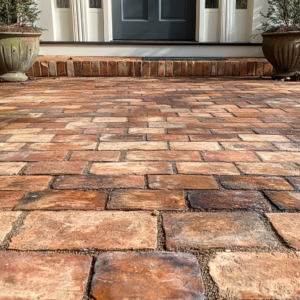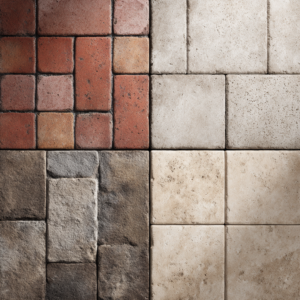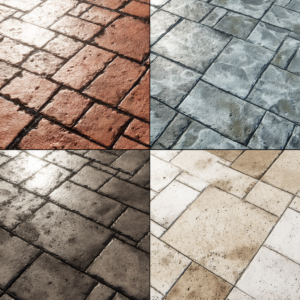Pavers are an essential element in the construction of modern outdoor spaces – from patios and driveways to walkways and even roads. They come in a variety of materials, styles, and shapes, each offering unique benefits and aesthetics. But are all pavers permeable?
The distinction of whether a paver is permeable or not is a crucial step in paver choice. In this article, we want to answer this question by focusing on important distinctions regarding permeable pavers, as well as exploring some options of materials. So let’s get right to it.
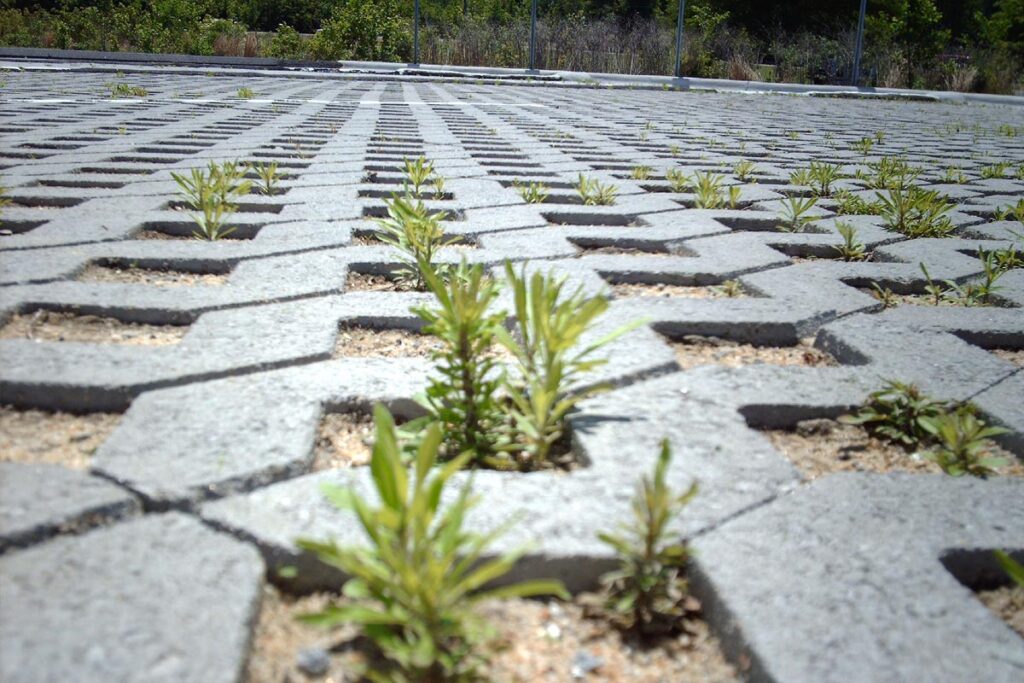
Jump to:
Are all pavers permeable?
To give a straight answer: no. Not all pavers are permeable. In fact, most pavers you can find in the market are non-permeable. But to answer this question fully, we must first talk about an important distinction.
When talking about permeable pavers, there is a difference between the pavers themselves, individually speaking, and the installation as a whole.
While not all pavers are permeable, from an individual perspective, an installation can certainly be. What changes is that some pavers are more or less recommended for permeable installations.
The best pavers to use in a permeable installation are the ones we call permeable pavers. They are a specialized type of paving material designed to facilitate the efficient flow of water through them and into the underlying ground.
Understanding permeable pavers
One of the primary characteristics of permeable pavers is their ability to allow water to permeate through their surface, rather than shedding it like traditional impermeable surfaces such as concrete or asphalt.
This key feature is achieved through the careful selection of materials and the paver’s unique design, which includes voids or gaps that create pathways for water infiltration.
The pavers come in various materials – such as concrete or natural stone, each tailored to offer durability and water permeability.
The environmental benefits of permeable pavers are manifold – playing a crucial role in stormwater management, helping to reduce runoff and its associated problems.
When heavy rain occurs, water typically runs off impermeable surfaces, carrying with it pollutants like oil, heavy metals, and debris, ultimately causing localized flooding and overwhelming stormwater drainage systems.
Permeable pavers, on the other hand, absorb and filter water as it passes through, trapping pollutants and gradually releasing the water into the soil.
By reducing stormwater runoff, permeable pavers mitigate the risk of flooding, safeguarding properties and infrastructure from water-related damage. Moreover, they contribute to recharging underground aquifers, helping to maintain a healthy balance in local ecosystems.
And, when it comes to maintenance, permeable pavers require relatively little upkeep compared to traditional paving materials. Occasional cleaning and debris removal are generally all that is needed to ensure their continued functionality.
This low maintenance requirement not only reduces long-term costs but also aligns with sustainable practices.
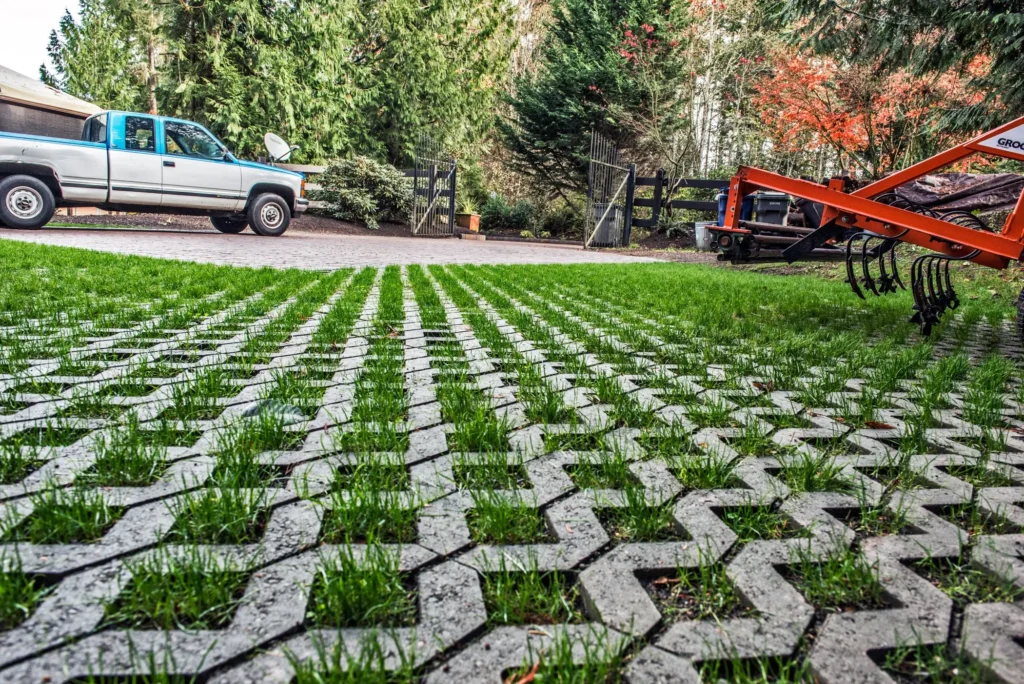
Permeable vs non-permeable paver installation
The main difference between permeable and non-permeable paver installations is, of course, their approach to water management. Permeable pavers are designed to allow water to flow through them and infiltrate the ground beneath.
They effectively reduce surface runoff, allowing rainwater to recharge groundwater, which can help prevent flooding and erosion. Permeable pavers are an eco-friendly choice, as they help mitigate water pollution by filtering out pollutants as water percolates through the ground.
Non-permeable pavers, on the other hand, do not allow water to pass through them; this can lead to increased surface runoff, potentially causing erosion and local flooding. To address this issue, a well-designed drainage system is required to redirect and manage rainwater, which can add to the overall installation cost.
As for the environmental impact, permeable pavers are considered more environmentally friendly.
They help to reduce the heat island effect by allowing rainwater to cool the ground as it infiltrates. These pavers promote natural water filtration, enhancing the quality of groundwater and reducing pollution in local water bodies.
Non-permeable pavers tend to exacerbate the heat island effect, as they reflect and retain heat. Moreover, they contribute to the pollution of local water bodies since pollutants like oil and chemicals can be washed into stormwater drains and eventually end up in rivers and lakes.
Something else to consider is the fact that maintenance requirements for permeable and non-permeable paver installations differ significantly.
Permeable pavers typically require less maintenance. Since water passes through them, there’s minimal risk of standing water and fewer issues with ice formation. Regular cleaning and occasional refilling of the joint material may be necessary to maintain their functionality.
But when it comes to non-permeable pavers, maintenance is a much more significant issue – they are prone to surface ponding, which can lead to issues such as algae growth and surface degradation. In cold climates, non-permeable pavers can also be damaged by freeze-thaw cycles.
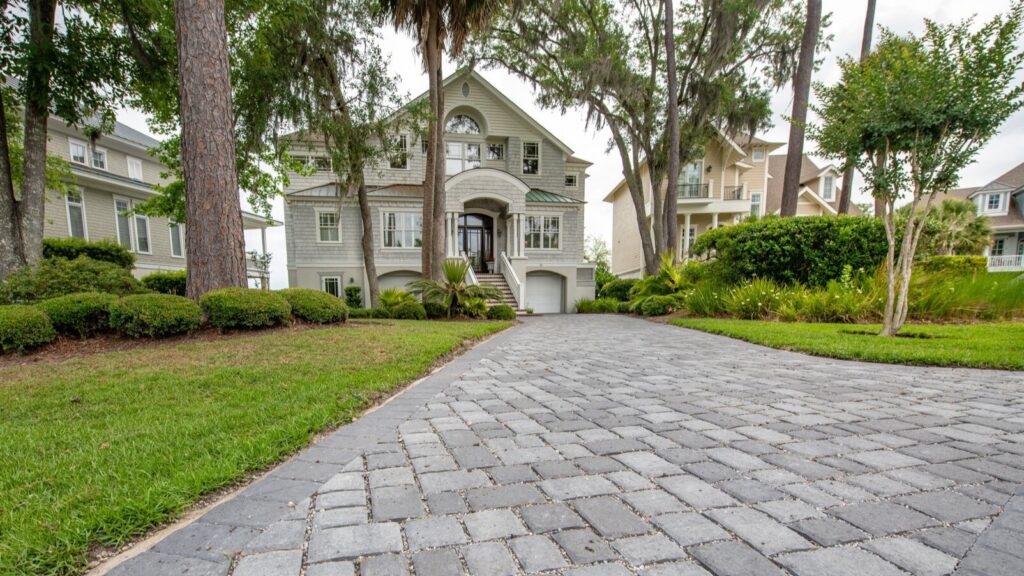
Making the right choice
Choosing between permeable and non-permeable paver installations ultimately depends on your specific needs and priorities.
Permeable pavers are designed to allow water to infiltrate the ground and be an eco-friendly solution, primarily used in areas where drainage and environmental considerations are paramount.
Non-permeable pavers, on the other hand, provide a solid and stable surface, suitable for high-traffic areas and locations where water management is not a primary concern.
Here at JS Brick, over our 23 years of experience in the business, we have helped countless homeowners with their paver projects – and we guarantee every installation has its unique characteristics.
What works for one specific setting might not work for the other! The best way to ensure your installation is perfect for your setting is to hire professional hardscape contractors to help you.
So hire a professional around your area you can trust. If you happen to be around our area of activity, Sarasota County, FL, you can contact us anytime for a free estimate of our services. We would be glad to provide any help you need and add you to our long list of satisfied customers!

